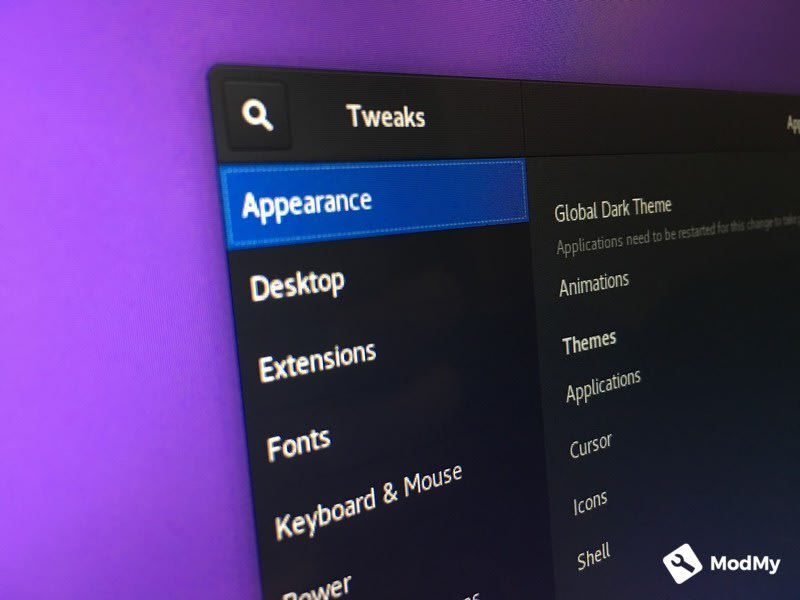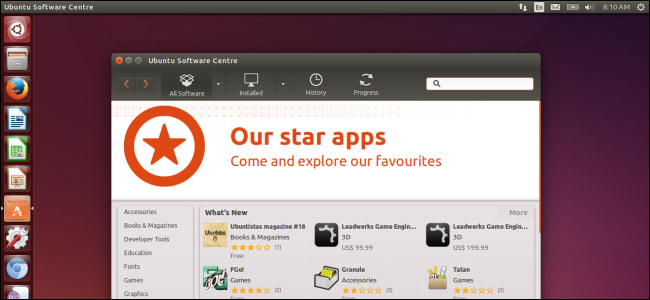Before we move on to the topic, Linux is actually a kernel not an operating system. The Operating system is actually GNU/ Linux (I assume you already know that) . But for the sake of simplicity I will be address it with Linux.
On mid of december 2010, I booted into windows for the last time as my primary OS. From then on, my primary computing environment - at least on a laptop computer - was GNU/Linux. It was not a quick decision but a result of millions rolled eyeball and torture I faced while I was using windows.
First of all , Windows was/is not free, you have to throw few hundred bills just to get the windows licence which was was hard to come by for college students like me back at the time. Although you could always use pirated windows and cracks which was easily available on the internet but it comes with a price. Few minutes after installing the cracks, You machine would be crawling with spywares, viruses and clickjacking softwares and god knows what other things that secretly tamper with your privacy which was one of the reasons Linux best suited my needs. Also after win 7, the UI kind of sucked for me with the metro view for start (though they realized this in later versions ) and little or no backward compatibility for my favorite softwares not to mention the hour long update screen and the hassles in getting dev tools setup (P.S Was a computer science student). Then I made up my mind to declare #Windependence .
I came to know about linux from a developers group in my college and they helped me with some awesome wikis that inturn helped me setup my laptop for the Os. I wanted to start with something noob friendly and ubuntu became the first Linux distro I got to play with.
As I was acquainted with the click and install thing on windows in the past, the first few days was uneasy with the commands but after that, I got hang of it (perks of being a dev) and was happy terminal user. Linux opened a whole new opportunities and platform
Here are the few reasons that I love linux:
- Updates aren't a headache. They're glorious
- The Linux Community is awesome with tons of guides to help you out
- Linux Is Free and has awesome support for devices
- Perfect For Programmers
- Customize any aspect of the OS
- Tons of distros to suit your needs












Top comments (22)
Great post, I'm glad it worked out so well for you! I've made the switch 3 years ago (Windows 10 to Ubuntu 14.04) and haven't looked back!
Are you still using Ubuntu or have you switched to something else since 2010? Have you tried any other distro's?
I've been using Ubuntu for yeeeears - maybe 10 of em. I'm a builder, and its "just plain works" ethic just plain works for me lol.
I've tried others, but always come back. 🤷♀️
I switched to arch for a while in between but something about Ubuntu pulled me back. So still on Ubuntu
I've tried to switch to Fedora at some point, still have it installed as a dual boot. But you're right, Ubuntu pulls you back in somehow!
Haven't tried fedora but from what I heard it's quite user friendly
Similar story. Around the time I really started getting involved in front-end dev work I was stuck with Windows (this was at a Higher Education institution) and discovering that anything nodejs-related really sucked on Windows. So I landed up running Linux in Vagrant to get all the modern goodness I needed - at the time this was Grunt :D
Since then I gradually moved over to Linux; at work and at home. I kept my Core 2 Duo Sony Vaio laptop running for a good number of years past its best before date by making the switch and am now happy with Ubuntu Budgie remix on a relatively modest laptop. For anyone with more limited funds getting into dev work; Linux is a no-brainer.
How Windows managed to keep my PC at the same pace, no matter the year or specs on the newer PCs, the fact that a new PC with Windows 10 is just as fast as my old PC with Win95 to me is mind-boggling. With Linux everytime I upgrade my PC, Linux keep getting faster, looking better and I'm able to do more, is interesting to note how with each new PC I'm able to add another screen with 5 more workspaces, and even then faster than my las machine. Windows always seemed to leave me about 40% of available RAM no matter the year, no matter the specs of my new PC, I keep upgrading it, Windows keep eating more. Nowdays I only use Windows in others PCs, just Linux for me and today I'm using the same distro and almos the same SW than 10 years ago and they are newer, better looking and more powerful but consuming about the same as 10 years ago; my now old machine (a Thinkpad X230) feels like a beast running the latest and best that Linux has to offer. And when I upgrade my HW again I'm certain than the extra resources will be used by me, not my OS .
TBH I think the same is true in many fields of computing. My PC ten years ago was perfectly capable of rendering all the web content I accessed; but now mobile devices with equivalent (if not better) specs struggle with some websites. It used to be that you had to optimise your code as much as possible to ensure good performance; but now the priority seems to be churning stuff out quickly - adding lots of unnecessary bells and whistles (and plenty of tracking code) - in order to catch the current wave of popularity and make a fast buck.
Linux seems to be one of the exceptions; and I'm very grateful for that :)
Yeah thats a bummer. It also keeps running some services like cortana which you don not need.
you will be amazed to see how many options you get in Linux opposed to windows. I am also a nodejs dev and struggled quite a few times when working with the tools
I must address to sometimes pedantic GNU/Linux users that correct other about the inclusion of GNU in the name (not alluding the author who I suspect was trying to not offend those I talk about); although technically Linux is just the kernel, that is the defacto name, whether RMS likes or not; and to call the entire OS GNU/Linux is also not accurate, the OS is not just the kernel and GNU tools, there is more than that in it and also, nowdays not all Linux OS include GNU, many replaced the GNU tools for Busybox, you can replace glibc with musl, etc. so to me "Linux" is a good enough umbrella term. If we would be really pedantic we should use Linux OS or Linux/OS or maybe Linux/glibc|musl/GNU toolkit|busybox/Systemd|OpenRC/... maybe there "they" will be happy :)
Yeah
Great post, I'm going to drop Windows for linux. I'm convinced
You have no idea how much you'll learn and how much you were missing. A lot of nerdy fun is ahead :) welcome. And as a quick unsolicited advice, don't worry to much about your first distro, just pick one easy to install and that looks nice to you, you'll probable try a lot of them until you find your right one. Avoid choice paralisis: Mx, Ubuntu, Mint or other. Just like a cold shower, don't overthink it, in time you'll realize that the distro is not that important.
One bit, to that end: when given the choice, choose to put your home mount on a separate partition. Trust me - the extra couple clicks will be worth it in the long run.
That's a good advice, but I think that is relevant for the 2nd install, in my experience the first install is just to feel the waters, change the wallpaper, browse the installed SW, checking out some configs. After a week or less is to checkout about Linux, alternatives to knowns SW, maybe play a bit with the terminal, feel like a hacker (is part of the process, we all got through it), find it kinda weird for a while. Then maybe a month into it and after checking all the "best distro to ... 2019" you'll probably install a couple of distros after anything worth saving is done, in that case you can just throw it in a usb drive. When you understan partitions you'll naturally move things around, to have a separate /home from the start is hard because you have no idea of how much you need, how to split your space. For me the first install should be in its own drive, default settings, as simple as possible and hopefully in a secondary machine, no fear to lose anything, first install, just play and mess with it. Basic knowledge comes almost by osmosis. After that you'll figure it out your next step, mine was go directly, from Mandrake to Gentoo, probably not a recommended path to everyone.
my 2 cents...
welcome aboard. Make sure you try it in virtual box so that you will get a basic understanding of how things work before actually booting it as an Os so as not to break the system or suffer a data loss .(This is quite a newbie trend , happend to me too)
+1 to the suggestion to try a few distros before installing. You can install to a VM if you want to test over a few days; but for a quick look you can also boot many straight off a USB drive.
In fact I always have a USB drive with Linux installed at the ready. On a couple of occasions I've had an OS (usually Windows) fail to boot because of corrupted files; and been able to boot Linux from USB to access the drive and either fix things or recover my files.
First thing I did one week after using my new PC with Windows pre-installed is switching to Ubuntu...currently running 19.04. ✌️✌️✌️
Good going. Windows kindof sucks when you are a power user.
Same path as you regarding being put into Linux in college. Have used Ubuntu, Elementary and Mint and haven't really looked back at Windows.
Yeah, once you get used to it you will not want to look back. It offers almost everything that windows offer but better.The gaming area which was only concern in past decade, is also doing great thanks to steam and some new platforms out there